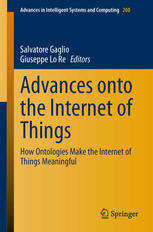

Most ebook files are in PDF format, so you can easily read them using various software such as Foxit Reader or directly on the Google Chrome browser.
Some ebook files are released by publishers in other formats such as .awz, .mobi, .epub, .fb2, etc. You may need to install specific software to read these formats on mobile/PC, such as Calibre.
Please read the tutorial at this link: https://ebookbell.com/faq
We offer FREE conversion to the popular formats you request; however, this may take some time. Therefore, right after payment, please email us, and we will try to provide the service as quickly as possible.
For some exceptional file formats or broken links (if any), please refrain from opening any disputes. Instead, email us first, and we will try to assist within a maximum of 6 hours.
EbookBell Team

5.0
80 reviewsThe title of this book is a pun on the use of the preposition “onto” with the aim of recalling “Ontology”, the term commonly adopted in the computer science community to indicate the study of the formal specification for organizing knowledge.
In the field of knowledge engineering, Ontologies are used for modeling concepts and relationships on some domain.
The year 2013 celebrates the twentieth anniversary of the World Wide Web. The simple network of hypermedia has transformed the world of communications with enormous implications on the social relationships. However, traditional World Wide Web is currently experiencing a challenging evolution toward the Internet of Things (IoT), today feasible thanks to the integration of pervasive technologies capable of sensing the environment.
The most important contribution of IoT regards the possibility of enabling more efficient machine-to-machine cooperation. To such aim, ontologies represent the most suitable tool to enable transfer and comprehension of information among computer applications, even those designed and developed by unrelated people in different places.
This book proposes a collection of contributions illustrating different applications following these directions and that are the outcomes of real experiences developed in the context of research projects.